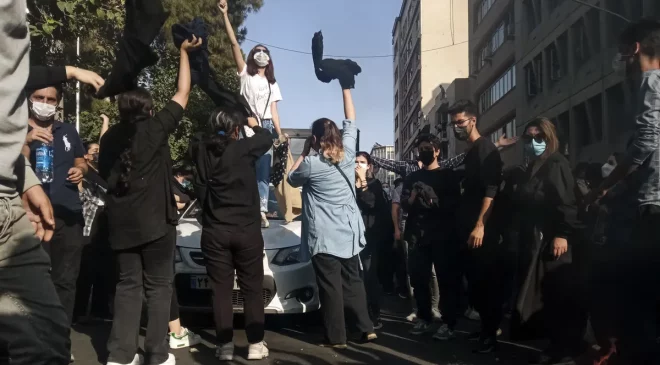
“Iranian authorities are using their go-to playbook of putting maximum pressure on peaceful dissidents ahead of the anniversary of Mahsa Amini’s death,” said Tara Sepehri Far, senior Iran researcher at Human Rights Watch. “The arbitrary arrests of a dozen activists are aimed at suppressing popular discontent with ongoing impunity and rights violations.”
The authorities, the news release said, had accused the leaders of the network – without providing any evidence – of participating in trainings aimed at a “soft overthrow” of the system. Intelligence and judicial authorities regularly accuse activists of vague national security charges in trial processes that fall grossly short of international standards.
The 12 people arrested on August 16, according to Bidarzani, are Yasamin Hashdari from Anzali, Negin Rezaei from Fuman, Shiva Shah Siah and Vahedeh Khoshsirat from Lahijan, and Jelveh Javaheri, Zahra Dadras, Zohreh Dadras, Matin Yazdani, Forough SameiNia, Azadeh Chavoshian, and Sara Jahani and her husband, Human Taheri, who is a political activist. Jelveh Javaheri and Forough Samie Nia were among a group of women’s rights defenders who started a family violence prevention campaign in November 2016. They were both previously arrested in December 2019.
Over the past week across the country, the authorities have also summoned and arrested other activists. On August 17, Human Rights Activists News Agency (HRANA) reported that the authorities in Gilan province had arrested Mahsa Basir Tavana, the sister of Mehran Basir Tavana, who was killed during the 2022 antigovernment protests. HRANA also reported that, on August 16, intelligence authorities arrested a travel blogger, Elaheh Asgari, and transferred her to Evin prison after she went to the passport office to try to get her seized passport.
According to the Telegram channel of an independent student association, university administrators have referred students from Amir Kabir, Allameh Tababayi, and Khajeh Nasir universities to their university disciplinary committees.
In recent weeks, the authorities have also increased their crackdown against the Bahai religious minority community. According to Bahai International Community (BIC), on August 13, the authorities rearrested 11 Bahai citizen including Jamaluddin Khanjani, a 90-year-old former Baha’i community leader who had served 10 years in prison, as well as his daughter, Maria Khanjani.
Iranian authorities have also sought to suppress potential memorial events by families for some of the protesters killed in 2022. On August 14, BBC Persian reported that the authorities have pressured families of those who were killed during the protests to avoid holding memorial services for their loved ones.
In recent months, Iranian authorities have also summoned, arrested, and sentenced activists who were released from detention and granted amnesty only months ago.
